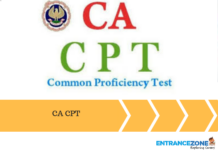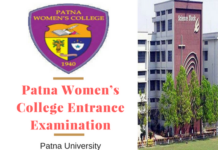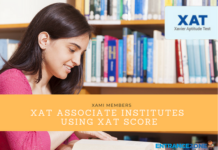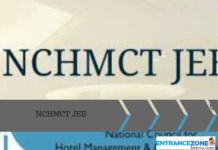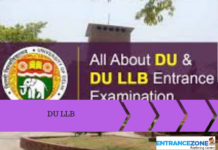JEST 2024 is also known as Joint Entrance Screening Test has been postponed. This entrance exam is conducted by the Science & Engineering Research Board (SERB) at the national level once a year. This exam offer admission into Ph.D./Integrated PhD courses in Physics or Theoretical Computer Science or Neuro-Science or Computational Biology. The exam will be conducted in offline mode. Interested candidate can go through the following article for the detailed information regarding the JEST 2024 exam.
Admission Open 2023
- Top University & Colleges Official Links, Application & Scholarship Forms.
JEST 2024 Status
- JEST 2024 is a national level entrance exam for admission to PhD/Integrated PhD programmes in Physics, Theoretical Computer Science, Neuroscience and Computational Biology.
- The exam is conducted by the Science and Engineering Research Board (SERB) of the Government of India.
- The JEST 2024 application form will be released in the fourth week of January 2024.
- The exam is scheduled to be held on March 26, 2024.
- The admit card will be released in February 2024. The result will be declared in April 2024.
| Exam Date | To be announced |
JEST 2024 Important Dates
Contains
Joint Entrance Screening Test 2024 important dates are mentioned in the table below.
| Events | Dates 2024 (tentative) |
| Starting of application form | 11 January 2024 |
| Last date to submit application forms | 22 February 2024 |
| Availability of admit card | 1st week of May 2024 (tentative) |
| JEST 2024 exam date | May 2024 (tentative) |
JEST 2024 Admit Card
The important details of the JEST Admit card are given below.
Subscribe to Get Updated Information about JEST 2024: Application Form, Eligibility, Exam Pattern - Admissions
- Joint Entrance Screening Test Admit Card will be released in the month of May 2012(tentative)
- Hall ticket has been released online mode on the official website.
- Candidates have to log-in by entering a username and password to download the admit card.
- Candidates are required to carry admit card along with valid ID proof at the examination centre.
- No candidate will be allowed to give an examination without having admit card and id proof.
- Students are advised to keep the hard copy safe till the counselling process.
JEST 2024 Exam Pattern
Vital information regarding the JEST Exam Pattern is given below.
| Exam Mode | Offline mode(PBT) |
|---|---|
| Questions Type | Multiple Choice Question(MCQs) |
| Sessions | Single |
| Exam Duration | 3 hours |
| Medium | English only |
| Sections | 3 section |
The marking scheme of each section is given below.
| Section | No. of questions | Marking | Negative Marking |
| Section A | 15 | 3 | 1 |
| Section B | 10 | 3 | 0 |
| Section C | 25 | 1 | 1/3 |
JEST 2024 Syllabus
The detailed information regarding JEST Syllabus is given below.
- Students can prepare from the topics studied at graduation & post-graduation level.
- Some of the topics from Physics & Theoretical Computer Science are discussed below.
Physics:
- Mathematical Methods
- Classical Mechanics
- Electromagnetism & Optics
- Quantum Mechanism
- Thermodynamics & Statistical Physics
- Electronics.
Theoretical Computer Science:
- Analytical Reasoning & Deduction
- Discrete Mathematics
- Graph Theory
- Combinatorics
- Data Structure & Algorithm
- Principle of Programming
Preparation Tips
The tips to prepare for the JEST 2024 Exam are given below:
- Prepare according to the exam pattern and syllabus.
- Make a study schedule and follow it for the preparation.
- Make short notes and revise them weekly.
- Solve Previous year papers and evaluate the performance.
- Give mock tests to understand the timing for each question.
JEST Sample Papers
The sample paper for Physics and TCS (Theoretical Computer Science) is provided by jest 2024 organizing institute.
| JEST TCS Sample Paper | Click Here |
| JEST Physics Sample Paper | Click Here |
JEST 2024 Answer key
The detailed information regarding the JEST Answer key is given below.
- The official answer key will be released in the first week of March 2024
- Answer key will be released through online mode on the official website.
- The last date for the objection against the answer key in the second week of March 2024.
- The final answer key will be released in the third week of March 2024.
How to check JEST Official Answer?
The procedure of checking the JEST official answer is given below.
- Visit the official website. i.e. www.jest.org.in/joint-entrance-screening-test
- Click on “Physics- Answer Key 2024”.
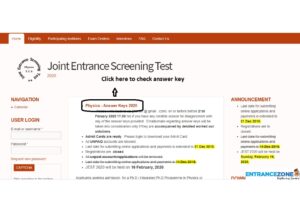
- Official answer key will be displayed on the screen
JEST 2024 Result
The detailed information regarding JEST Result is given below.
- Joint Entrance Screening Test Result will be declared in the last week of March 2020.
- Scorecard will declare through online mode on the official website.
- Candidate has to login through their application form to view scorecard.
How to check JEST Result?
The procedure of checking the JEST Result is given below.
- Visit the official website. i.e. www.jest.org.in
- Enter Email or username and password.
- The result will be display on the screen.
- Take the print of the result for the counselling round.
JEST 2024 Counselling
The detailed information regarding JEST Counselling is given below.
- Candidates who will qualify the exam will get a call for Counselling / Interview process.
- Qualified candidates have to contact and report to the participating institution for an interview.
- No centralized admission process will be conducted for admission in the institutes.
Candidates have to bring following original documents at the time of admission for verification:
- 12th mark sheet & passing certificate
- Graduation Mark sheet
- JEST 2024 Admit card
- JEST 2024 Scorecard
- Passport size photographs
- Domicile Certificate
- Category Certificate, etc.
Exam Centers
JEST will be held at the locations indicated below.
- Ahmedabad
- Aligarh
- Allahabad
- Bangalore
- Bardhaman
- Bhopal
- Bhubaneswar
- Calicut (Centre is subject availability. the Second option will be allotted if the centre is not available)
- Chandigarh
- Chennai
- Delhi
- Goa
- Guwahati
- Hyderabad
- Indore
- Jaipur
- Kanpur
- Kharagpur
- Kochi
- Kolkata
- Madurai
- Mangalore (Centre is subject availability. The Second option will be allotted if the centre is not available)
- Mumbai
- Nagpur
- Nainital
- Patna
- Pune
- Raipur
- Roorkee
- Sambalpur
- Silchar
- Siliguri
- Srinagar
- Trivandrum
- Udaipur
- Vishakhapatnam
Participating Institutes
Visit the individual institute pages to view the programmes and subject areas being offered.
| Participating Institute |
Subjects |
|---|---|
ARIES(Aryabhatta Research Institute of Observational Sciences, Nainital) |
Astronomy and Astrophysics, and Atmospheric Physics |
| Bose Institute
(Bose Institute, Kolkata) |
Atmospheric Sciences, Biophysics, Complex systems and networks, Condensed matter physics and materials science, High energy physics and astroparticle physics, Quantum physics and quantum information, Nuclear and radiation physics |
| HBNI | Homi Bhabha National Institute, Mumbai |
| HRI
(Harish-Chandra Research Institute, Allahabad) |
Theoretical Physics, Astrophysics |
| ICTS
(International Centre for theoretical sciences (TIFR), Bangalore) |
Astrophysical Relativity, Data Assimilation and Dynamical Systems, Statistical Physics and Turbulence, and String theory and Quantum Gravity. |
IGCAR(Indira Gandhi Centre for Atomic Research, Kalpakkam) |
Solid-State Phase transformations, Superconductivity, Structure and dynamics of soft condensed matter, Band structure studies, Accelerators based Irradiation induced phenomena, Low-dimensional systems, Physics of interfaces, Nano-materials, Thin films technology and Theoretical physics |
| IIA
(Indian Institute of Astrophysics, Bangalore) |
Astronomy and Astrophysics, Astronomical Instrumentation, Optics, and Atomic Physics. |
| IISc
(Indian Institute of Science, Bangalore) |
Condensed Matter Physics (Experiments and Theory), Astronomy and Astrophysics (Theoretical), Atomic and Optical Physics (Experimental), Biocrystallography and Bio-informatics, and High Energy Physics (Theoretical). |
| IISER BHOPAL
(Indian Institute of Science Education and Research Bhopal) |
Condensed Matter Physics (Theory and Experiment), Soft Matter Physics (Theory), Biophysics, Laser-Plasma Interactions, Ultrafast Physics (Experiment), Astrophysics and Cosmology, High Energy Physics (Theory, Phenomenology, and Experiment), Non-linear Optics |
| IISER KOLKATA
(Indian Institute of Science Education and Research Kolkata) |
Condensed Matter Physics, Field Theory, Classical & Quantum Gravity, Cosmology, Solar Science, High Energy Physics, Non-linear dynamics, Statistical Physics, Soft Matter, Optics & Spectroscopy, Atomic physics, Biophotonics, Spintronics, Nanoscience, NMR, Quantum Information |
| IISER MOHALI
(Indian Institute of Science Education and Research, Mohali) |
Quantum Theory, Quantum Information Processing, NMR-Methodology, Optics, Statistical Mechanics, Quantum Thermodynamics, Non-linear Dynamics, String Theory, Ultrafast Physics, and Low-Temperature Mesoscopic Physics. |
IISER PUNE(Indian Institute of Science Education and Research, Pune) |
Field Theory, Theoretical Particle Physics, Condensed Matter Physics, Non-linear Dynamics, Complex Systems and Networks, Nuclear Magnetic Resonance Spectroscopy, Quantum Information Processing, Radio Astrophysics, Atomic Physics and Quantum Optics, Energy Studies, Solar and Plasma Physics, Nanosciences, Scanning Probe Techniques, and Semiconductor Physics and Devices. |
| IISER THIRUVANANTHAPURAM
(Indian Institute of Science Education and Research, Thiruvananthapuram) |
Experimental Condensed Matter: Magnetic and Superconducting Materials, Nanoscience and Energy materials, Photonics, Soft Condensed Matter, Semiconductor Physics and Devices, Surface Sciences and Nano-scale Plasmonics, Terahertz and Ultrafast Spectroscopy; Theory: Cosmology, Classical and Quantum Gravity, Gravitational Wave Physics, Quantum Information Theory, Quantum Field Theory, and Statistical Physics. |
| IIST
(Indian Institute of Space Science and Technology, Thiruvananthapuram) |
Astronomy and Astrophysics, Atmospheric Sciences, Applied and Adaptive Optics, Atomic and Molecular Physics, Condensed Matter Physics, Nanotechnology, Nonlinear Dynamics, Photonics, Quantum Information, and Statistical Physics |
MSc(The Institute of Mathematical Sciences, Chennai) |
Theoretical Physics, Theoretical Computer Science, and Computational Biology |
IOP(Institute of Physics, Bhubaneswar) |
Physics (Condensed Matter, Nuclear and High Energy Physics) and Accelerator-based Research. |
| IPR
(Institute for Plasma Research, Gandhinagar) |
Physics (Experimental and Theoretical). |
| IUCAA
(Inter-University Centre for Astronomy and Astrophysics, Pune) |
Physics, Astronomy, and Astrophysics. |
| JNCASR
(Jawaharlal Nehru Centre for Advanced Scientific Research, Bangalore) |
Experimental and Theoretical Condensed Matter Physics, Statistical Mechanics, and Materials Science. |
| NBRC
(National Brain Research Centre, Manesar) |
Molecular, Computational and Systems Neuroscience. Sensory & motor systems, learning & memory, language & speech processing, functional neuroimaging: EEG, MEG, fMRI, MRS, stem cells, developmental neurobiology, neurogenetics, neurodegenerative and neurodevelopmental disorders, cancer signalling & glial tumour biology. |
| NCRA-TIFR
(National Centre for Radio Astrophysics, TIFR, Pune) |
Astronomy and Astrophysics. |
| NISER
(National Institute of Science Education and Research, Bhubaneswar) |
Theoretical High Energy Physics and Lattice QCD, Experimental High Energy Physics, Condensed Matter Physics (Theory and Experiment), Optics and Metamaterials. |
| PRL
(Physical Research Laboratory, Ahmedabad) |
Theoretical Physics, Astronomy and Astrophysics, Solar Physics, Space and Atmospheric Sciences, Planetary Science and Geo-Sciences. |
| RRCAT
(Raja Ramanna Centre for Advanced Technology, Indore) |
Lasers and their Applications, Laser Plasma Interaction, Cold Atom Physics, Condensed Matter Physics (Superconductivity and Magnetism, Crystals and Thin Films), Nanomaterials and Applications, Non-linear and Ultrafast Optical Studies, Beam Physics, and Free Electron Laser. |
| URI
(Raman Research Institute, Bangalore) |
Astronomy and Astrophysics, Light and Matter Physics, Soft Condensed Matter Physics (Liquid Crystals, Physics in Biology), and Theoretical Physics. |
| SINP
(Saha Institute of Nuclear Physics, Kolkata) |
Condensed Matter Physics (Theory and Experiments), Nuclear Physics (Theory and Experiments), High Energy Physics (Theory and Experiments), Astroparticle Physics, Quantum Gravity, String Theory, Mathematical Physics, and Materials Science (Surface Science and Plasma Physics). |
SNBNCBS(Satyendra Nath Bose National Centre for Basic Sciences, Kolkata) |
Astrophysics and Cosmology, Chemical and Biological Physics, Condensed Matter Physics and Material Science, High Energy Physics and Quantum Field Theory, Mathematical Physics, Nanosciences, Quantum Optics and Quantum Information, Statistical Physics, and Complex Systems. |
| TIFR-TCIS
(TIFR Centre for Interdisciplinary Sciences, Hyderabad) |
Condensed Matter Physics & Materials Science of Nonequilibrium, Soft & Living matter, Fluid Dynamics, Intense Laser-matter interactions, Computational Physics, Statistical physics, NMR of Biophysical & other systems |
TIFR(Tata Institute of Fundamental Research, Mumbai) |
Astronomy and Astrophysics, Condensed Matter Physics and Material Science, High Energy Physics, Nuclear and Atomic Physics, Theoretical Physics |
| UGC-DAE CSR
(UGC-DAE Consortium for Scientific Research, Indore) |
Surfaces, Interfaces, Thin Films and Nanomaterials, Physics at Low Temperatures and High Magnetic Fields, X-ray, Optical and Electron Spectroscopic Studies Using Synchrotron and Laboratory Sources; Electrical, Magnetic and Thermal Properties of Condensed Matter; Condensed Matter studies using Magnetic Neutron Diffraction, Nuclear Technique Based Condensed Matter Physics-Positron Annihilation Spectroscopy, Mossbauer Spectroscopy, Experimental Nuclear Physics, Gamma-Ray Spectroscopy of Nuclear High Spin States, and Nuclear Reactions. |
VECC(Variable Energy Cyclotron Centre, Kolkata) |
Accelerator Physics, Condensed Matter Physics and Materials Science, Nuclear Physics (Experiments and Theory), Relativistic Heavy Ion Collisions (Experiments, Theory, QCD and QGP), and Physics of Neutrinos (Experiments). |
JEST 2024 Application Form
The detailed information regarding JEST Application form is given below.
- Joint Entrance Screening Test application form window is closed now.
- Candidates can fill their form through online mode on the official website.
- Aspirants have to submit their registration form before the last date.
- Applicants have to fill the registration form carefully because there is no provision of JEST application correction window.
- Applicants have to fill the valid and working information in the form.
JEST 2024 Application Fee
The application fee of JEST exam is given below.
| Category | Application Fee |
| General & OBC | Rs. 400/- |
| SC/ST & female candidates | Rs. 200/- |
| Female applicants belonging to SC/ST | No Fee |
Mode of Payment: Candidate can pay the fee through online mode by credit card, debit card or net banking.
NOTE: Fee will be not refunded by the conducting body in any circumstances.
How to fill the Application form of JEST?
The steps to apply for the Joint Entrance Screening Test (JEST) is given below.
- Click on the official website of JEST. i.e www.jest.org.in/application-form
- Enter email Id and password to register.
- On successful registration, an email will be sent to the applicant’s registered email-id with a confirmation link for verification.
- Fill all the necessary details carefully.
- Upload the scanned photograph and signature of the applicant.
- Click on ‘Fee Payment’ and submit the application fee.
- After confirming your account, use the ‘Apply’ link for submitting the application form.
- After successful submission of the application form, an ‘Application form ID” along with application number will be sent by the authority.
- On successful submission of the application form, take the printout for future reference.
JEST 2024 Eligibility Criteria
The detailed information regarding JEST Eligibility Criteria is given below.
| Programmes | Eligibility Criteria |
| Ph. D (Physics) | M.Sc. in Physics. (Some institutions accept B.E./B.Tech. /M.Sc./M.E./ M. Tech in Applied Physics and Mathematics). |
| Ph. D in Theoretical Computer Science at IMSc | M.Sc./M.E./M.Tech in Computer Science or a related area. |
| PhD in Neuroscience at NBRC | M.Sc (Physics/Mathematics), B.E/B.Tech/MCA in Computer Science. |
| PhD in Computational Biology at IMSc | M.Sc./M.E./M.Tech/MCA in any discipline |
| Integrated M.Sc./ M. Tech-Ph. D (Physics) | B. Sc. (Physics/Mathematics).
For NISER, B. Sc (Physics) or B.E./B.Tech in Engineering (Physics) with 60% and above. For IIA, B.Sc. (Physics/Mathematics) /B.E./ B. Tech in Electrical/ Instrumentation/ Engineering Physics/Electronics and Communications/ Computer Science & Engineering/Optics and Photonics. For IISER-Pune, ICTS-TIFR, NCRA-TIFR, and TIFR-TCIS, B.Sc. (Physics). |
| Integrated PhD in Theoretical Computer Science at IMSc | B.Sc./B.E./B.Tech. /M.C.A. in Computer Science or a related stream. |
| Integrated M. Tech-Ph.D. at IIA | M.Sc. (Physics/Applied Physics)/Post-B.Sc. (Hons.) in Optics and Optoelectronics/Radio Physics & Electronics. |
| Integrated PhD at IISER, Thiruvananthapuram | B. Sc. (Physics) or B.E./B. Tech. in any discipline |
NOTE: Click here to check and download JEST course wise eligibility.
JEST 2024 Highlights
The detailed information regarding the JEST exam is given below
| Exam Name | JEST 2024 |
|---|---|
| Full Name | Joint Entrance Screening Test 2024 |
| Conducting Body | Science and Engineering Research Board (SERB) |
| Level | National Level |
| Course | PhD & Integrated PhD |
| Official website | https://www.jest.org.in/joint-entrance-screening-test |
| Exam Purpose | To offer admission in various PhD and Integrated PhD Courses Offered by the Most Prestigious Institutions across India |
Stay connected to entrancezone for JEST exam.
FAQs
Admit card will be available in JEST webpage. Admit cards will NOT be sent by post/email. Bring a print-out of the downloaded Admit Card and one of your photo-ids to the examination centre.
The questions are based on the general syllabi of graduation and post-graduation level courses offered by various Indian universities and institutions. JEST question papers are normally not made available. However, some questions from previous year's examinations are available on this page (see above).
Candidates must have a valid email-id prior to registering themselves with JEST.
JEST score is valid for only one year. How to obtain the JEST admit card?
What is the level of questions in the examination ?
To apply do I need to have an email-id?
What is the validity period of JEST score?



